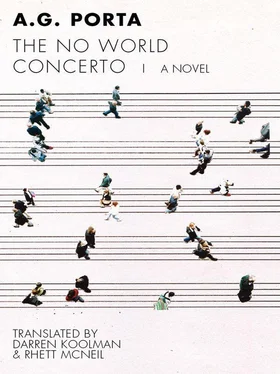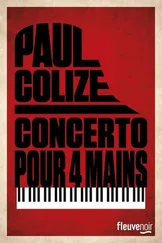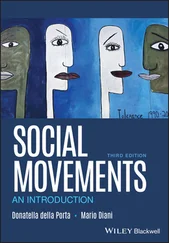It seems they lost no time finding a replacement. The girl watches them through the glass screen, chagrined. She didn’t know the young conductor’s latest conquest would be singing. In fact, the possibility never even entered her mind. She found the new rehearsal venue easily enough. Once inside the building, she walked along a corridor, looking into the other booths, some occupied, some not, which reminded her of the ones in her native city. On finding the booth the Little Sinfonietta were rehearsing in, she was shocked to see, through the glass screen, the latest conquest singing in her place — her voice almost imperceptible, distant, filtering into the corridor through the slots of the soundproof booth. The girl didn’t know she could sing. Surely this means something, but what? A coincidence? They don’t exist. Chance doesn’t exist in logic, she thinks. She braces herself before entering, looks at them again through the glass screen. She can’t tell by listening, but it looks like she’s reciting some verses. It seems they lost no time in finding a replacement. They probably planned it all along, she thinks. She has to get over it and just accept the reality of the situation. There’s no point in thinking about the hows and the whys. Whatever conclusion she arrives at will be painful. The girl enters the booth. She’s not going on tour with them, so maybe now she can just disappear, she thinks, quietly and without a fuss, just as she planned. The latest conquest is a quick study. She’s probably spent days practicing alone. The girl watches her carefully: she’s beautiful, a little older than her. During his presentation, the young conductor says she studied at one of the musical conservatories in the neighboring country’s capital. How lucky, he says while taking her hand, one of our biggest fans happens to be a soprano. Yeah, lucky, says the girl. She has a different musical background, but the young conductor says he’s sure the conquest will learn quickly enough, because now they’re going to be professionals, and everything they do will make the news — the girl’s mother and their new manager will make sure of that. As such, the latest conquest will have to learn the Little Sinfonnieta’s new motto. Marketing, it’s all about marketing, the young conductor adds, inducting the orchestra’s new member. His latest conquest feigns momentary indecision to disguise her inner jubilation.
It’s just a coincidence, insists the young conductor. Until yesterday, no one knew she was a soprano. The girl listens, resting her elbows on the table of a dreary café. I’m not having another fight with you, he tells her. She doesn’t believe him. He’s being disarming because he’s impatient to get to a meeting with his latest conquest. He has to teach her some of the Little Sinfonietta’s repertoire before the tour. The girl looks away, dismissing what he says. She wonders if the conquest has also been learning how to play foosball. Wearily, she turns back to look at the conductor. As always, he’s wearing the Scholastic Institute’s regulation uniform, comprised of a navy-blue blazer, gray pants, white shirt, and necktie. The girl wonders how long into the meeting he’ll manage to keep them on. The next scene takes place in a squalid apartment. On the street outside there’s a neon sign flickering, phasing with an occasional breeze that parts the curtains of a window to reveal the young conductor of the orchestra lying in bed with the girl. It’s a cliché, but the screenwriter decided to include this scene in order to show the sordid conditions in which they’ve made love. The young conductor licks the gummed edge of the paper skin of a joint he’s rolling. He wants to know if the girl could write a libretto for an opera about a game, about a No World of parallel planes, where a female piano prodigy is trying to find an original way to interpret a difficult work, a prodigy who insists on using an impossible style, and who always contradicts the opinions of others. Of the people who love her, he adds. She knows he’s being sarcastic, but she kisses his chest, mechanically, unfeelingly: a kiss good-bye. She wants to get out of this shit-hole. She has no intention of writing this or any other libretto. Things have changed. She tells him calmly, matter-of-factly, and without bitterness or anger. There’s a silence. The young conductor looks at the ceiling, watches the light reflected there from the flickering sign outside. No, things aren’t what they used to be, he says while lighting the joint. The world changes, people change. His words sound hollow, phatic, spoken to fill an emptiness, to break the silence. In the darkness of the bedroom, the girl’s face flickers in and out of view with the blue light of the neon sign. Indeed, she says, but when you think about it, nothing stays the same. The young conductor mumbles an apology, the kind mumbled by someone who hardly ever apologizes, who only does so when someone he loves is threatening to leave him. But she doesn’t care for his apology. She knows that, by the end of the week, the latest conquest will have taken her place — both in the Little Sinfonietta and the conductor’s affections. Not that it matters. Not that anything matters to her now except writing. The philosopher W once wrote, “6.4 All propositions are of equal value.” If she didn’t know he was talking about something else, she’d say this proposition was false. She takes his magnum opus out from under her clothes to check that she remembered the line correctly. Then she puts the book safely in her satchel. Her thoughts drift elsewhere. She’s been promising herself for days to get rid of the young conductor and brilliant composer. Getting rid of the brilliant composer shouldn’t be a problem though. He’s no one.
A death would make sense, thinks the screenwriter, as he finishes his cigarette and faces the building opposite. For once, though, his eyes aren’t searching the darkness of his neighbor’s window, but the darkness of the sky above it. A death would add suspense. He’d planned to involve the old guy in the classically-cut suit in some sort of shady affair. The girl’s father is an expert in these dealings. He supposes the guy in the classically-cut suit is the one to kill off, but then he can’t picture the circumstances under which it would happen. Not yet, at least. He can’t see a single star in that cosmic dark from which they came. The aliens who don’t know they’re aliens. The screenwriter gives up the search and goes to the mini-kitchen. He lets the cold tap run a few seconds before filling his glass. A death would add an element of intrigue. But it doesn’t have to be a death that provides this. He postpones his decision, takes a sip of water, and leaves the glass on the sink. After a minute or two, he’s back in front of the typewriter. He can’t just turn his mind off by flipping a switch. But doesn’t he always say this when it happens to be on? The characters have independent lives. They make and break relationships, leave old paths to follow new ones. He thinks again about a possible death. The girl is on a path to a new life. In a moment, she’ll discover her father’s involved in something she hasn’t yet considered, thinks the screenwriter, who’s now rewriting a scene he isn’t satisfied with. After hearing his stomach groan a fifth time, he decides to go to the café in the plaza and grab a sandwich. The waitress doesn’t usually work nights, not that he’s even thinking about her right now. He must consider the story’s structure again. He feels rusty, like someone who’s come back to do a job after a long absence. Still, he draws up a list of key characters. There’s no such thing as gratuitousness in a movie — everything happens for a reason, exists for a reason.
He writes their names in the order he remembers them: the young conductor of the orchestra, the brilliant composer, the mother, the father, Cousin Dedalus, McGregor, the old guy in the classically-cut suit. . who else? He thinks a few moments. He knows he’s forgetting someone. He gives up. Besides, he’s almost completely worn out after two days’ almost uninterrupted writing. Once back in his room, he turns on the TV and lies back on the bed. He wonders if the girl will surprise him by showing up tonight. No. He doesn’t want to get his hopes up. On the screen, the most notorious terrorist in history is appearing before the bench — his hands cuffed, dressed completely in white, smirking.
Читать дальше












